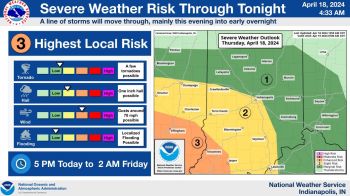
INDIANAPOLIS — Tuesday, the Indiana Senate passed a bill banning protesting in front of people’s homes by a vote of 29-16.
Senate Bill 348 was previously in committee and faced some pushback due to it’s restrictions. If passed, the bill would ban protests or picketing outside of a person’s home, including on the streets.
First, police officers will give a warning to any protestors to disperse, but if they refuse the protestors will be charged with a misdemeanor for residential harassment. That could bring a punishment of up to 60 days in jail and a $500 fine.
Bipartisan legislators argued before the vote, some said it imposed restrictions on rights to public assembly.
“We’re adding this level of prohibition on that right that has always been enjoyed in our public streets. This isn’t somebody’s yard…this isn’t even the parkway, this is essentially the streets,” said Democratic Sen. Rodney Pol.
Republican Sen. Michael Young joined in, “It wouldn’t bother me a bit if I did the right decision to have people be mad at me. It’s their right to do it. But I don’t think it’s our right to keep protestors away from public officials. Somehow it just doesn’t seem American.”
Sen. Pol proposed an amendment to the bill that failed. It would have stopped any actions against protestors who are only passing though the neighborhood of a person’s home, but not focusing on their house directly.
The bill’s Republican author, Sen. Scott Baldwin, cited the protests outside of Supreme Court Justice Brett Kavanaugh’s home as a reason it is needed. He previously said that the bill came to him from The Indiana Prosecuting Attorneys Council, who raised concerns to him of protests outside their and other citizen’s homes.
“All persons should enjoy the same level of protection, which is what this legislation seeks,” Sen. Baldwin said, “That means that everyone is protected regardless of their political ideologies, socioeconomic status, or employment.”
Senate Bill 348 passed with 29 Yeas, 16 Nays, 4 Excused, and 1 Not Voting. It now moves to the House for a vote.













